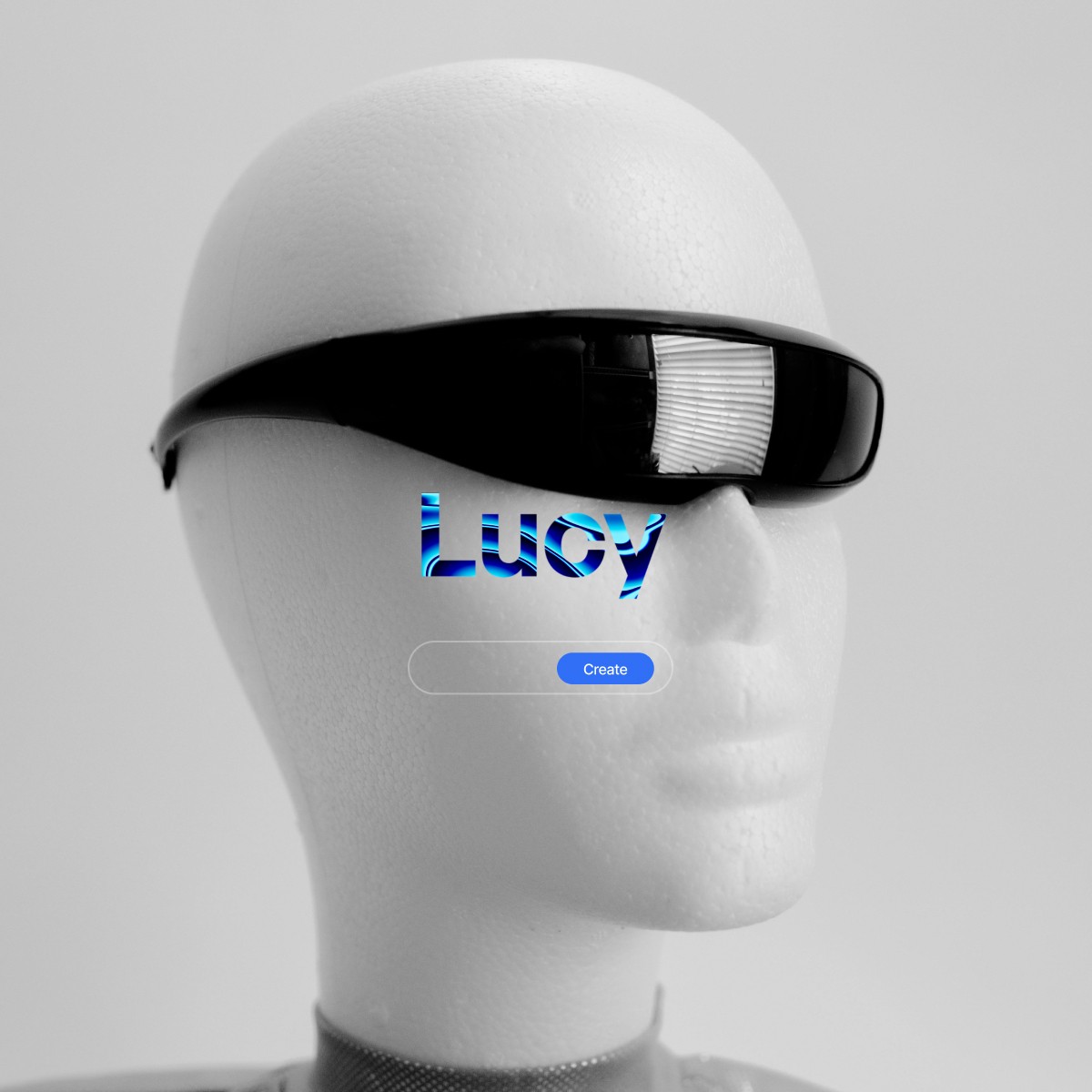



impossible to
possible

LucyBrain Switzerland ○ AI Daily
Google VEO How to Use: Complete Beginner's Guide
September 29, 2025
TL;DR: Learn how to use Google VEO from account setup through professional video creation with step-by-step instructions that eliminate confusion and deliver immediate results. This complete guide covers everything beginners need to create quality videos successfully.
Google VEO: Your Gateway to Professional Video Creation
Google VEO democratizes professional video creation by transforming simple text descriptions and images into broadcast-quality videos. Complete beginners can generate professional content within minutes while experienced creators leverage advanced features for sophisticated video production without traditional equipment or technical expertise.
Why Google VEO is Perfect for Beginners
Simple Interface: Intuitive design requires no technical background while providing powerful video generation capabilities suitable for professional applications and creative projects.
Immediate Results: Generate high-quality videos from text descriptions within minutes while learning the platform through hands-on experience and practical application.
Professional Quality: Achieve broadcast-standard output from day one while developing skills and techniques that support business applications and creative goals.
Cost-Effective Learning: Start with free credits and affordable pricing while exploring capabilities without significant financial investment or long-term commitments.
Step-by-Step Google VEO Tutorial
Phase 1: Getting Started with Google VEO
Step 1: Account Setup and Access
Creating Your Google VEO Account:
Visit VEO Platform: Navigate to Google VEO through Google AI or search "Google VEO"
Sign Up Process: Use existing Google account or create new account for VEO access
Verification: Complete email verification and account setup requirements
Terms Acceptance: Review and accept Google VEO terms of service and usage policies
Profile Setup: Configure account preferences and notification settings
Understanding Access Requirements:
Step 2: Interface Overview and Navigation
VEO Dashboard Components:
Generation Panel: Primary interface for creating videos
Project Library: Storage and organization for generated videos
Settings Menu: Account preferences and configuration options
Help Resources: Tutorials, documentation, and support materials
Credit Balance: Usage tracking and billing information
Key Interface Elements:
Phase 2: Creating Your First Videos
Step 3: Basic Text-to-Video Generation
Your First VEO Video:
Simple Prompt: Start with "Professional person presenting in office"
Duration Setting: Select 5-10 seconds for initial testing
Quality Option: Choose standard quality for faster generation
Generate Video: Click generate and wait for processing completion
Review Result: Evaluate output quality and identify improvements
Basic Prompt Examples for Beginners:
Step 4: Understanding Generation Settings
Essential VEO Settings:
Phase 3: Intermediate Techniques and Optimization
Step 5: Advanced Prompting Techniques
Improving Prompt Quality:
Professional Prompt Structure:
Subject: Who or what is the main focus
Action: What activity is being performed
Environment: Where the action takes place
Style: Professional, casual, artistic approach
Quality: Specific quality and presentation requirements
Step 6: Image-to-Video Conversion
Using Images with VEO:
Image Selection: Choose high-quality photos with clear subjects
Upload Process: Add image to VEO interface
Animation Prompt: Describe desired movement and animation
Settings Configuration: Select duration and quality options
Generation: Process image-to-video conversion
Optimal Image Characteristics:
Resolution: Minimum 1080p for best results
Composition: Clear subject with good background separation
Lighting: Even, professional lighting without harsh shadows
Focus: Sharp, well-focused subjects without motion blur
Phase 4: Professional Applications and Advanced Features
Step 7: Business and Marketing Applications
Professional Video Creation:
Step 8: Quality Optimization and Best Practices
Maximizing VEO Results:
Advanced VEO Techniques for Better Results
Professional Workflow Development
Systematic Video Creation Process:
Planning Phase: Define objectives, audience, and messaging
Content Development: Create prompts and gather source materials
Generation Phase: Produce videos using optimized settings
Review Process: Evaluate results and identify improvements
Optimization: Refine prompts and settings based on results
Quality Control Standards:
Technical Quality: Resolution, clarity, and professional presentation
Content Accuracy: Message delivery and brand alignment
Audience Appropriateness: Target demographic and platform requirements
Brand Consistency: Visual identity and messaging coherence
Creative Enhancement Strategies
Artistic and Creative Applications:
Troubleshooting Common Issues
Generation Problems and Solutions
Common VEO Challenges:
Optimization Strategies
Performance Improvement Techniques:
Prompt Refinement: Continuously improve prompting based on results
Settings Optimization: Adjust quality and duration for best outcomes
Workflow Efficiency: Develop systematic approaches for consistent results
Learning Resources: Utilize Google VEO documentation and community
Professional Success Strategies
Business Implementation
Corporate VEO Integration: Transform business communication through systematic VEO implementation that enhances professional presentation while reducing video production costs and complexity.
Marketing Enhancement: Develop marketing video capabilities that support brand objectives and drive engagement while maintaining professional quality and brand consistency.
Training and Education: Create educational content that improves learning outcomes and knowledge transfer while leveraging VEO's accessibility and cost-effectiveness.
Creative Development
Portfolio Building: Build impressive creative portfolios that demonstrate VEO expertise while attracting clients and creative opportunities through professional presentation.
Content Creation: Develop ongoing content creation capabilities that support social media presence and audience engagement while maintaining creative vision and quality.
Skill Development: Master VEO techniques that provide competitive advantages in creative markets while building valuable technical skills for career advancement.
Frequently Asked Questions
Q: How long does it take to learn Google VEO basics? A: Most beginners create quality videos within 30 minutes of starting. Professional proficiency develops over 10-20 hours of practice with systematic learning and experimentation.
Q: What should I expect from my first VEO videos? A: First videos typically show good quality with room for improvement. Focus on simple prompts initially, then gradually add complexity as you understand the platform better.
Q: How much does Google VEO cost for beginners? A: VEO offers free credits for initial experimentation. Ongoing costs range from $20-200/month depending on usage volume and quality requirements for most users.
Q: Can I use VEO videos for commercial purposes? A: Yes, VEO-generated videos can typically be used commercially. Review Google's specific terms of service for current licensing and usage guidelines.
Q: What's the biggest mistake beginners make with VEO? A: Using overly complex prompts initially. Start simple with clear subject-action-environment descriptions, then add detail as you gain experience and understanding.
Q: How do I improve VEO video quality? A: Use specific, detailed prompts with professional terminology. Include quality descriptors like "professional," "broadcast quality," and specify lighting and environment details.
Q: Can I create consistent characters across multiple VEO videos? A: Yes, through detailed character descriptions or image-to-video techniques. Develop character sheets with specific physical and clothing details for consistency.
Q: What video formats does VEO support? A: VEO typically generates MP4 videos at various resolutions. Check current documentation for specific format options and export capabilities.
Q: How do I get better at writing VEO prompts? A: Practice with simple prompts first, study successful examples, analyze your results, and gradually increase complexity. Focus on clear, specific descriptions.
Q: Can VEO replace traditional video production? A: VEO excels for certain applications like presentations, demonstrations, and marketing content. Complex productions may still benefit from traditional methods or hybrid approaches.
Q: What technical requirements do I need for VEO? A: Standard web browser and internet connection. No special software or hardware required. Faster internet improves upload/download experience.
Q: How do I plan a series of VEO videos? A: Develop consistent character descriptions, environmental settings, and prompt templates. Plan narrative structure and maintain visual consistency across episodes.
Master Google VEO Video Creation
Expand your VEO expertise with comprehensive guides and advanced techniques:
Google VEO Complete Guide 2026: Master Hub for AI Video Generation - Complete VEO mastery covering all features and professional applications
Google VEO Text to Video Prompts: 100 Examples That Work - Proven prompts for immediate results
AI Professional Headshots: 100 LinkedIn Profile Picture Prompts That Actually Work - Master professional AI photography for career advancement
AI Dating Profile Pictures: 60 Attractive Photo Prompts That Actually Get Matches - Apply AI visual skills to personal branding and relationship success
Bottom Line: Google VEO transforms beginners into video creators through intuitive interfaces and powerful AI capabilities. Success requires understanding basic prompting, systematic practice, and gradual skill development that enables professional video creation without traditional production complexity or costs.



